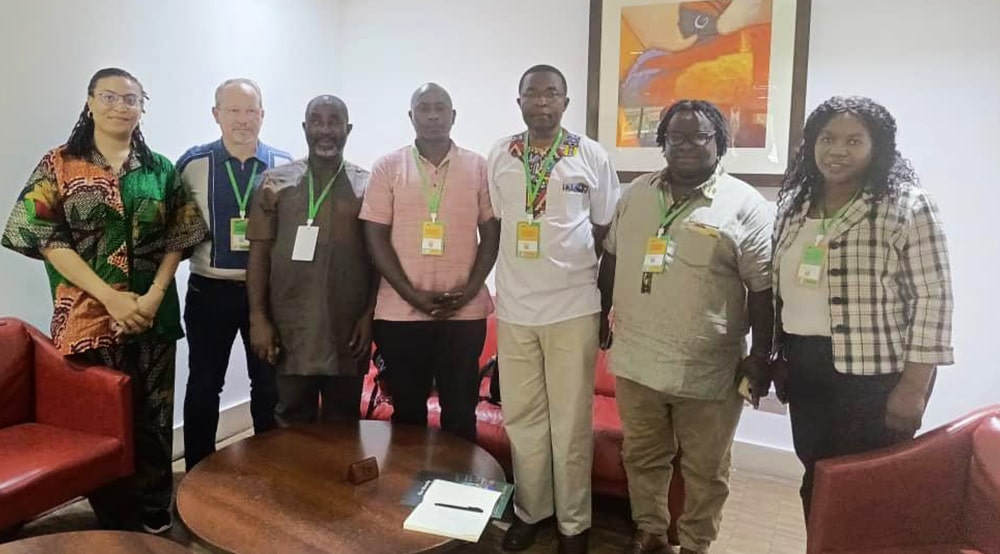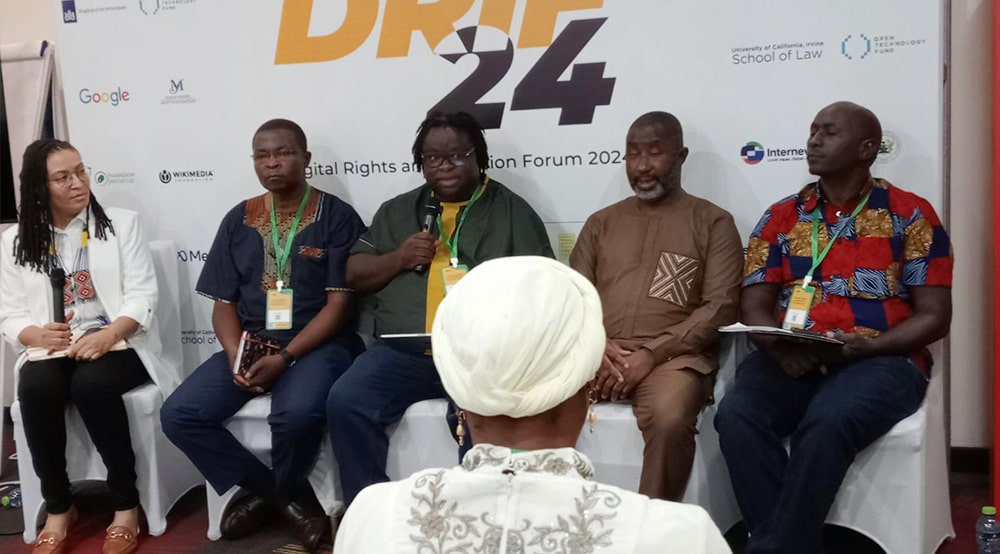The Digital Rights and Inclusion Forum (DRIF) is an annual African digital rights conference that brings together participants from 60 countries. Over 300 delegates attended the conference on the theme ”Fostering Rights and Inclusion in the Digital Age’’ between the 23rd and 25th April, 2024 in Accra, Ghana. The programme of DRIF included 80 sessions: panels, launches, tech demos, and lightning talks on various aspects of digital rights, including digital inclusion, digital security and data protection.
HomeNet Africa has been participating in a project that aims to increase the influence of marginalised workers in the development of digital social protection systems in partnership with the Institute of Development Studies (IDS), Manchester,UK. Social protection systems are rapidly being digitalised but without input from workers’ organisations and therefore the rights of marginalised workers can be violated.
The panel session on ‘’Workers Rights and Digital Social Protection’’ featured oral presentations from project partners HomeNet Africa (home-based workers), ATUMENT/ITUC (migrant workers), JONAPWD (disabled workers), and the African Platform for Social Protection. The panellists presented key findings from earlier research on digitalization of social protection and emphasised the need to regard workers’ rights and disabled rights as digital rights. Panellists argued the need to build bridges between the organisations of marginalised workers, digital rights organisations, and disability rights organisations.
The participation importance can be attributed to the following;
- The session served as a small first step in building bridges between the two communities to open up a space for communication and learning and the potential for alliances and collaboration. In an increasingly digital world, it is impossible to fully understand access to workers’ social protection without understanding the rapid digitalisation of social protection, and the digital rights issues that accompany it (including digital exclusions, data protection, and data security).
- Enabled panellists to put workers’ rights issues on the agenda of a major digital rights conference. For the first time marginalised workers’ organisations had a digital rights platform to raise their concerns. Presentations included raising the issue of how the digitalisation of social protection (and other government services) was excluding some marginalised workers, such as those with disabilities, low literacy, or those living outside the cellular footprint.




